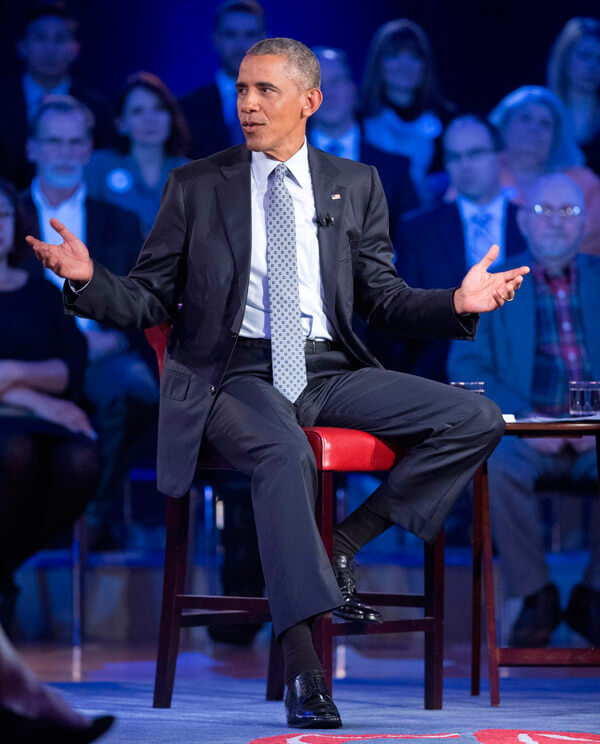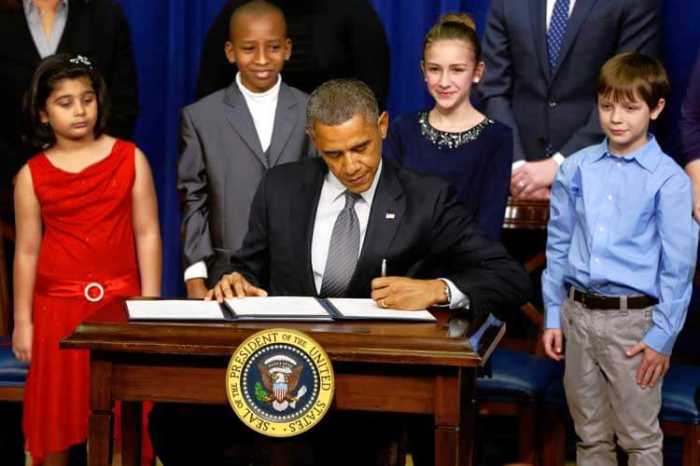It’s not unusual for a sitting president to be characterized by folks on the other side as “acting like a king” when, in the face of unbending congressional resistance to addressing a given issue, he opts for an alternative route, mainly the executive order. With FDR, having outstripped all others with reportedly more than 3500 of those, not necessarily Capitol Hill’s opposition but his lengthy presidential tenure in a dicey time of first the Great Depression and later WWII, would be cited as justification for his continuous resort to executive orders. Which is not to suggest that the “acting like a king” charge wasn’t leveled at the man who, with Lincoln, forms many historians’ top tier of the greatest American presidents.
These days, unless one has been out to lunch for the duration of the Obama presidency, it would be readily known that “acting like a king” and much worse would be heaped on this president for any executive order moves on his part. So, no surprise that the latest cause célèbre of an executive order by Obama, wherein he’s attempting to circumvent the gun lobby apologists in Congress to make some common-sense reforms in the laws governing accessibility of firearms, they wasted no time stomping all over the president’s plan of action. Needless to say, with other gun culture sickos outside of Congress giddily adding to the pile-on.
In the particular case of President Obama’s use of the executive order, there is of course more of an edge to the pushback from the Republican / Tea Party element, well beyond basic party-line disagreement, given the resentment and visceral animosity toward the president that’s permanently in place in that quarter. When Obama announced his executive orders on immigration a couple of months ago, folks similarly rushed to derail the move, the fate of that action now seemingly resting with the Supreme Court, after a lower court upheld a challenge to the presidential edict. The fierce reaction to the president’s immigration reform measures presented a sharp contrast to a few recent Republican presidents who also used executive orders to effect immigration changes, albeit without the heated, angry backlash that greeted the first African American president when he initiated action likewise aimed at tweaking the status quo on the immigration front
Executive orders issued by Republicans Dwight Eisenhower, Gerald Ford, Ronald Reagan, George H.W. Bush and George W. Bush were all designed to free up immigrant inflow situations to some degree ranging, per data from the American Immigration Council, at the high end from a reported 600,000 Cubans benefiting over several years from Eisenhower’s 1959 order, or 360,000 mostly Vietnamese benefiting from Ford’s 1975 action, to the low-end case of 900 orphans permitted to join adoptive U.S. families by a 1956 Eisenhower order. Notably, one of the core arguments in the 3-1 lower court ruling that blocked President Obama’s immigration initiative was the burden on state services that would result from the president’s action. It’s an argument that rings quite hollow in light of what had gone forward, absent the courts, in those GOP administrations. It also speaks to how the judiciary’s role in the so-called separation of powers oftentimes sees no “separation” at all, just continued political interplay in judicial guise.
As far as the president’s move around Congress on the gun issue, there’s little reason to expect that the gun crazies, in and outside of Congress, won’t make a dogfight of it, making it, again, a matter on which the high court is called upon to rule. And again, the issue will ride on whether there is to be found within a conservative tilted court enough do-the-right-thing assertiveness to stand in defiance of the gun culture’s overlords. So long as there remains a swath of the American citizenry bellicose enough and unbothered by the discredited position the country occupies globally, in its perplexing embrace of firearms as some badge of honor, this madness figures to continue. Those of us on the side of sanity should perhaps take some comfort from there now being action prompting fiery response, as opposed to a decade or so ago when the gun lobby, mowing down anyone who looked to be opposition, virtually muted congressional conversation about gun control.
There’s still the reality, however, of a Congress, the majority of whose members have no interest in doing other than the NRA’s bidding. Then there’s the matter of the ongoing “dis” from Congress and other players in the power mix that this president has faced since assuming office, and how that will impact even the modest gun safety measures proposed in his executive action. There’s reason to believe that all executive orders aren’t created equal.

























